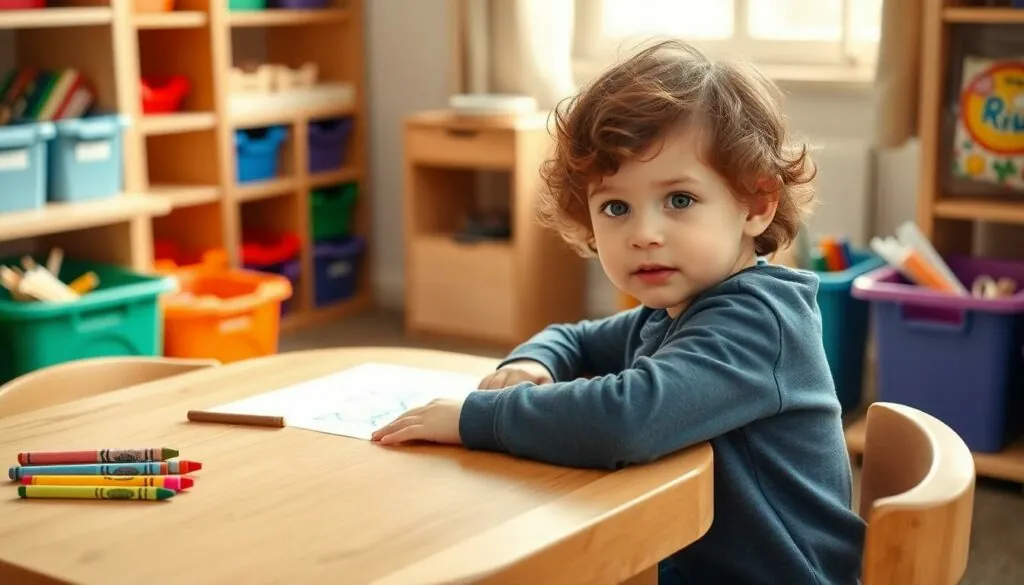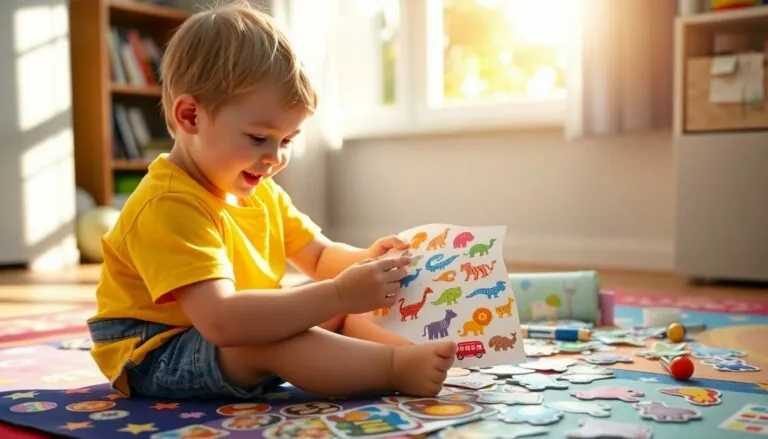Table of Contents
ToggleIn a world where kids seem to thrive on chaos, the Montessori table stands out as a beacon of calm and creativity. Designed to empower young minds, this piece of furniture isn’t just a table—it’s a launching pad for imagination and independence. With its child-sized dimensions, it invites little ones to explore, create, and learn without the threat of an adult-sized chair looming over them like a giant.
Overview of Montessori Table
A Montessori table embodies more than a simple piece of furniture. This table promotes a child-centric environment, encouraging independent exploration. Designed specifically for children, its size and height make it accessible, thus boosting their confidence in engaging with activities.
Crafted from natural materials, many Montessori tables are sturdy and safe, ensuring durability during play. The table’s design often includes rounded edges, minimizing the risk of injury. A variety of activities can take place on this table, such as art projects, puzzles, or group games, fostering social skills among peers.
Furthermore, many Montessori tables feature storage options. These compartments help children learn organization and responsibility, making it easier for them to manage their materials. The surface area of the table supports collaborative play, where children can work alongside each other, sharing ideas and tools.
In various settings, these tables serve not just homes, but also classrooms and daycare centers. Their versatility makes them a valuable addition to any learning environment. By using the Montessori method, educators and parents can cultivate a sense of autonomy in children, allowing them to take charge of their learning experiences.
Consideration of aesthetic elements also plays a role in selecting a Montessori table. Bright colors or natural wood finishes can enhance the learning space, making it inviting and stimulating. With the ideal Montessori table, children thrive in a space designed for creativity, independence, and joy.
Benefits of Using a Montessori Table
Montessori tables offer numerous advantages for children’s development. These tables create an environment that supports creativity and learning through their unique design.
Enhancing Independence
Independence grows when children engage with Montessori tables. Child-sized furniture allows kids to approach tasks without help, fostering self-reliance. Children gain confidence by freely accessing materials and expressing their ideas. As they make decisions, they learn responsibility and problem-solving skills. Family members notice increased motivation as children choose their activities. It’s evident that the design encourages exploration and personal growth, making it an integral part of their development.
Promoting Fine Motor Skills
Fine motor skills benefit significantly from the use of Montessori tables. Activities such as drawing and crafting enhance children’s dexterity. Children grasp small objects, manipulate tools, and learn control through hands-on experiences. Each task involves coordination, allowing kids to strengthen their hand-eye synchronization. Through repeated practice, they refine their movements and boost confidence in their abilities. Notably, these skills form the basis for future academic tasks, marking an essential aspect of the learning process.
Features to Consider When Choosing a Montessori Table
Choosing the right Montessori table involves several important features that contribute to children’s learning and development.
Size and Adjustability
Tables that match children’s dimensions encourage independence. Proportions matter, as they facilitate access to materials without assistance. Adjustability enhances usability, allowing a table to grow with the child. Measure the height to ensure it’s comfortable for sitting and standing activities. Selecting a table with adjustable legs provides flexibility for different ages or developmental stages.
Material Quality
Selecting high-quality materials ensures durability and safety. Solid wood constructions typically offer sturdiness and stability, essential for active environments. Non-toxic finishes should always be a priority, safeguarding children’s health while they play and learn. Tables designed with rounded edges minimize injury risks, enhancing the overall safety of play areas. Choosing eco-friendly materials reflects a commitment to sustainability, promoting a positive learning atmosphere.
Popular Montessori Table Options
Montessori tables come in various styles and sizes, catering to different needs and preferences. This section outlines popular choices focused on functionality and value.
Reviews of Leading Brands
IKEA’s LÄTT table is a well-known option, featuring a simple design with a sturdy build. Melissa & Doug offer a vibrant, washable surface that appeals to creative kids. Anagram Montessori’s tables are height-adjustable, making them suitable for growing children. Guidecraft combines aesthetics and functionality, often crafted from eco-friendly materials. Each brand emphasizes safety with rounded edges, ensuring a secure environment. User reviews highlight positive experiences, particularly regarding durability and usability.
Cost Comparison
Cost varies based on materials and features. IKEA’s LÄTT typically retails around $50, providing an affordable entry point. Melissa & Doug tables start at approximately $100, reflecting quality materials and unique designs. Anagram Montessori’s options range between $150 and $250, given their adjustable heights and premium construction. Guidecraft products often exceed $200, prioritizing aesthetics and durability. Investing in higher-quality tables can yield longer-term benefits, with durability enhancing value over time.
Conclusion
The Montessori table stands out as an essential tool in nurturing a child’s growth and development. Its thoughtful design encourages independence and creativity while providing a safe space for exploration. With features that promote organization and social interaction it becomes a cornerstone of learning environments.
Choosing the right Montessori table involves considering size materials and durability to ensure it meets a child’s needs. Whether in a home or classroom setting these tables not only enhance learning but also create an inviting atmosphere. Investing in a quality Montessori table is a step toward fostering a child’s autonomy and joy in their educational journey.







